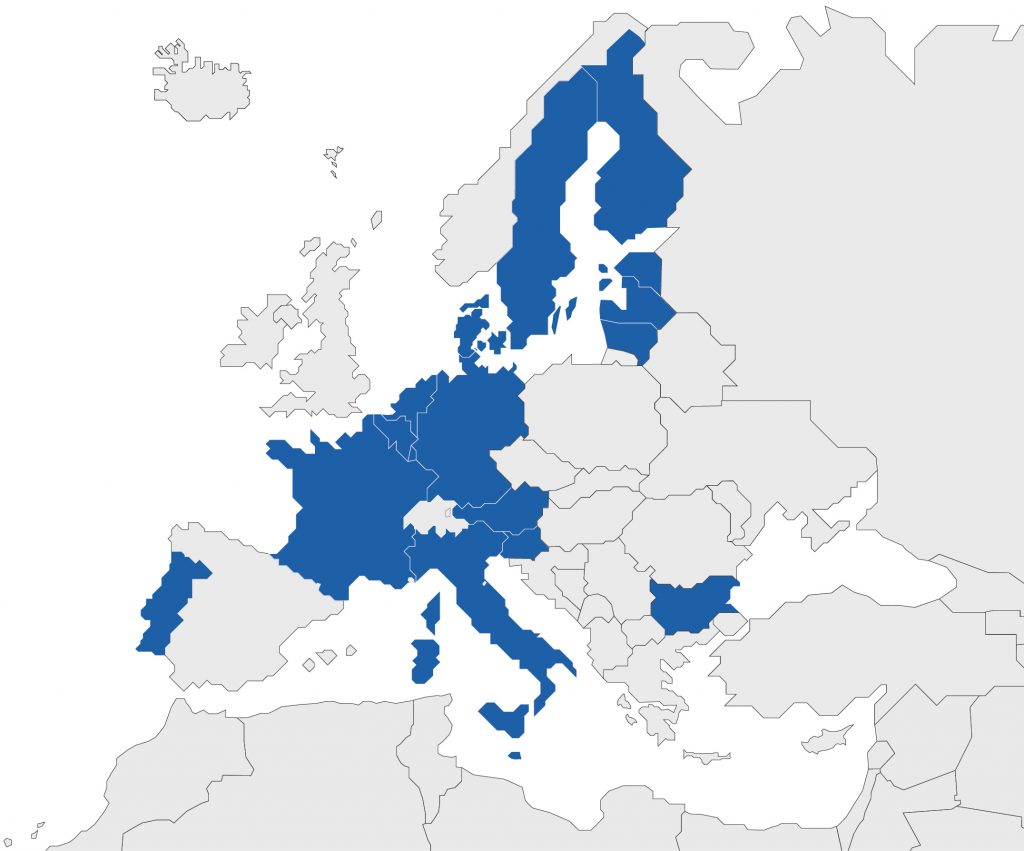The unitary patent: what changes for applicants?
The unitary patent, or ‘European patent with unitary effect’, came into force on 1 June 2023. This is a European patent granted by the European Patent Office (EPO) with unitary effect for the territory of the Member States of the European Union (EU) that participate in the unitary patent system and have ratified the agreement relating to a unified patent Court. Compared with the classic European patent, a unitary patent offers European patent holders protection that is territorially extensive and uniform in all participating Member States. Unitary effect is only conferred at the request of the patent holder.
The unitary patent system is accompanied by the creation of a new international jurisdiction, the Unified Patent Court (UP). This new court has exclusive jurisdiction to deal with cases involving the infringement or validity of unitary patents. A decision of the JUB is enforceable in all participating Member States.
Geographical coverage
To date, 17 States have ratified the agreement and participate in the unitary patent: Austria, Belgium, Bulgaria, Denmark, Estonia, Finland, France, Germany, Italy, Latvia, Lithuania, Luxembourg, Malta, the Netherlands, Portugal, Slovenia and Sweden.

Ultimately, the unitary patent will enable protection to be obtained in 25 EU Member States (corresponding to all EU Member States except Spain and Croatia, which have not wished to participate in the new system for the time being). Cyprus, the Czech Republic, Greece, Hungary, Ireland, Poland, Romania and Slovakia will be added to the previous list of 17 countries as soon as they ratify the agreement.
The unitary effect is obtained in the countries that have ratified the agreement on the date of registration of the unitary effect: there will therefore be different ‘generations’ of unitary patents.
